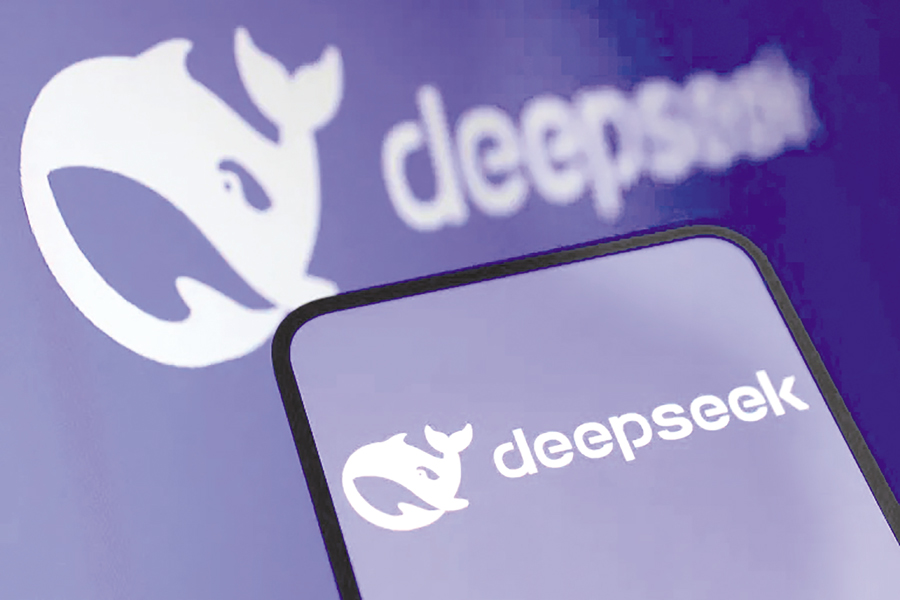
Published :
Updated :

The Artificial Intelligence (AI)-powered chatbot (a computer programme that can converse with its human user) resembling US tech company Open AI's ChatGPT that a Chinese tech firm, DeepSeek, launched last month has proved to be quite a disruptive innovation for the highly protected AI-sector in the West. Before DeepSeek's release, the US president Donald Trump was planning to build a USD500 billion AI-infrastructure project, Stargate, to dominate the tech world once and for all. Of course, China, who is a number one target of his trade as well as tech war, would be screened off from the researches done and the latest-generation AI products to be developed under the project. Oddly though, just when he announced his highly ambitious AI-infrastructure project, a little known Chinese tech start-up, DeepSeek, released this AI app shocking the tech community. And the development elicited instant response from the US president, who said DeepSeek's success should be a wake-up call for developers in the US. Clearly, DeepSeekR1, which is learnt to have been developed at a cost (USD6 million) is a fraction of what of Open AI invested for developing ChatGPT.
Notably, Open AI's development is said to have cost over USD100 million. Interestingly, US's USD2.94 trillion-worth tech giant, Nvidia, whose less expensive variety of older chips were reportedly used by the developer of DeepSeek. suffered the worst as it (DeepSaeek) caused to evaporate USD593 billion of the chipmaker, Nvidia's market value in one day. This is said to be a record loss for any company on the Wall Street. Now, what does this development mean for the tech world, especially the AI sector? It is that there is hardly any point trying to raise barriers against the flow of technological knowhow beyond the borders of a particular country. Both the present and previous Trump governments and the erstwhile Biden government of USA imposed sanctions and high tariffs on trade to deprive China of the cutting-edge knowledge of the AI industry. So, what did China do? It made the best use of whatever they had in hand and shook the AI world by showing that one does not need multi-billion dollar companies to develop state-of-the-art AI models. Also, by making innovative use of a less expensive technology, it is still possible to perform miracles.
However, that does not mean that China would stop here and just rest on its laurels. It will no doubt move ahead to produce the kind of silicon chips (semi-conductors) that the Taiwan Semiconductor Manufacturing Company (TSMC) makes by using a unique complex machine, ASML, from the Netherlands. Notably, these two companies have the global monopoly over making the most advanced chips. Now the question is how long the US and its other Western allies hope to maintain control over the semiconductor (silicon chip) market led by a handful of tech companies and deprive their rivals of the benefits of this advanced technology? In fact, it is a futile exercise and goes against the principle of free flow of information. Sometimes, the argument of safety is raised to justify actions like sanction on certain countries so they may not get access to certain products or pieces of scientific knowledge.
For instance, the argument of safety is still in force to keep control over sensitive nuclear technology so it may not reach countries whose leaders do not see eye to eye with the US and its allies. But such mechanism has not worked so far. And the idea that some country or society is safer or more sacrosanct than others to protect some product of human labour is inherently flawed. AI being one such product, entire humanity has a just claim to it.
sfalim.ds@gmail.com


 For all latest news, follow The Financial Express Google News channel.
For all latest news, follow The Financial Express Google News channel.